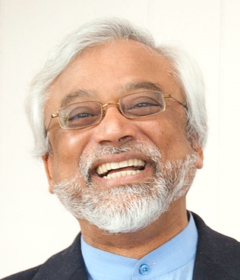By Jamal Rahman
“O humankind! We created you from a single pair of male and female persons and made you into nations and tribes that you might come to know each other.” Qur’an 49:13
“O God, You Have created this, I, you, we, they, to play the game of adoration with Yourself.” (Rumi)
As the Qur’an makes clear, there is a divine reason for the marvelous diversity in humanity. It is that we may come to know each other better, to be able to connect in life-giving ways with our fellow human beings, and learn to appreciate them as manifestations of God. This process is not always easy, especially if the other person we are trying to relate to is not a member of our family, tribe, culture, or religion. In a tongue-in-cheek revelation, the Quran says, “We have created some of you to be a trial for others.” (25:20) This unease is also part of the cosmic design! We may indeed present trials to each other, but this is part of the divine plan for learning how to overcome our prejudices and biases.
Wise elders from Asia have excellent advice for getting to know and appreciate one another, “share three cups of tea,” i.e. listen, respect, and connect. To truly listen, Rumi says, we must metaphorically put our head on the other person’s chest and sink into the answer. Often an enemy is simply someone to whom we haven’t listened. To cultivate respect for the other, we need to remember to distinguish between behavior and being. No matter how adversarial others may seem, their essential nature is divine; it is only their behaviors that we find objectionable. By keeping this discernment in our heart and mind, we gain the power to shift our outlook (and change “heaven and earth” as the wise say). Then we will be able to connect with the other. And as we do, we need to keep in mind that the goal is not to change that person’s values and beliefs, but to share each other’s values, beliefs, and stories on a personal level. This sharing will deepen our relationship.
Once we partake of those three cups of tea and establish a relationship, it becomes very difficult to demonize or dehumanize the other. Differences may remain, but they no longer loom as a threat. This human bonding also creates the possibility of collaborating on projects dear to both parties. This is borne out by polls taken during the furor and controversy in 2010 about building a mosque in an interfaith center at Ground Zero in New York. Of the respondents who were strongly opposed to the project, 61% had never met a single Muslim personally. Of the 26% of respondents who were in favor, all said they knew at least one Muslim personally.
The practice of sharing three cups of tea requires humility, sincerity, and persistence. Whenever I need encouragement in this endeavor, I repeat the words of Rumi to myself: “O God, you have created this I, you, we and they to play the game of adoration with Yourself.”

